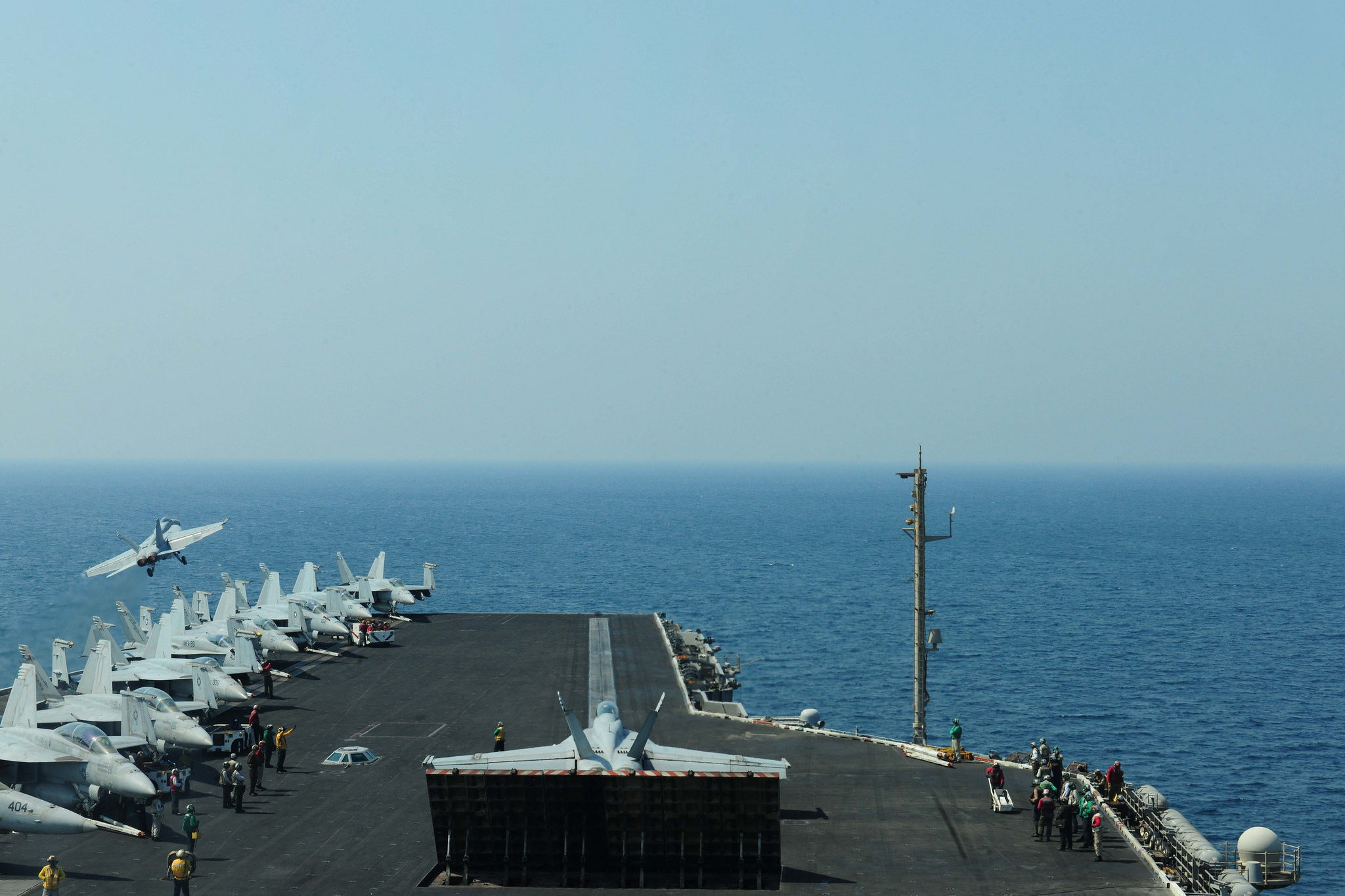By Cheryl Pellerin DoD News, Defense Media Activity
WASHINGTON, October 21, 2015 — Since operations began
against Islamic State of Iraq and the Levant targets in Syria and Iraq, the
coalition has conducted 7,603 airstrikes, an Operation Inherent Resolve
spokesman in Baghdad told Pentagon reporters today via video teleconference.
Army Col. Steve Warren said 4,933 of the strikes have taken
place in Iraq, and 2,670 have been conducted in Syria.
In Iraq, Iraqi forces have regained most of the Beiji oil
refinery and are clearing small pockets of enemy resistance, Warren said,
noting that coalition forces have conducted four airstrikes in Beiji over the
last week. The Iraqi air force has been flying in direct support of ground
forces at Beiji, flying more than 40 missions over the last three days, he
added.
“The ability of the Iraqi air force to fly close air support
missions and support their own ground forces marks a key milestone … in
capability that we are helping the Iraqi security forces develop,” Warren said.
Clearing IEDs
In Ramadi, Iraq is consolidating and reorganizing its
security forces in preparation for continued offensive operations, he added,
and Iraqi forces on the northern, southern and western axes are clearing
improvised explosive devices in populated areas.
ISIL forces in Ramadi have conducted unsuccessful
counterattacks in recent days, Warren said, including an attempted
counterattack last night along the western access using three vehicle-borne
bombs, indirect fire and a ground assault.
“Aided by coalition airstrikes, Iraqi security forces fought
off these attacks, and in the process destroyed a command-and-control node,
struck a [vehicle bomb] before the enemy was able to use it, and killed several
enemy [fighters],” Warren said.
Syria Airstrikes
In northern Syria, the coalition conducted 15 airstrikes
over the past eight days, focused mainly in Raqqa, Manjeb and Aleppo, the
colonel said.
“Yesterday … we signed a memorandum of understanding with
Russia regarding measures to minimize the risk of in-flight incidents” Warren
added, in the airspace over Syria. The memorandum includes only safety
protocols for aircrews he said. “We continue to believe that Russia's strategy
in Syria is counterproductive and will exacerbate the instability there,” he
added.
Warren said the coalition assesses that the Russians have
conducted about 140 airstrikes clustered around Hama, Homs and Latakia.
“According to open-source reports, these strikes have
displaced about 7,000 households, or 35,000 people,” he said.” [Most] of these
people are believed to be moving to areas where humanitarian support is already
strained due to overwhelming numbers.”
Civilian leaders from around the globe have called on Russia
to cease its attacks and seek a political solution to the Syrian civil war,
Warren said.
Targeting Infrastructure
Focusing on broader aspects of coalition air operations,
Warren discussed airstrikes against ISIL munitions factories and the balance of
activity on the battlefield.
Along with strikes against high-value targets, tactical
operations in support of troops, and dynamic strikes when the coalition sees
ISIL conducting operations, he said, “we’ve also got deliberate strikes
targeting their infrastructure.”
During the last 45 days, the coalition has struck and
destroyed 47 IED and vehicle-bomb factories and has struck 30 oil
infrastructure targets, Warren said.
Enemy use of suicide vests and vehicle bombs is down 49
percent from a 12-week average, he added, and IED incidents are down 32
percent.
“The intent with the IED factory and oil targets is to
pressure the funding and functioning of the ISIL war machine [by] getting at
their industrial base,” Warren said.
Pressuring the Enemy
Warren also explained that the battlefield is more than
individual fights.
“We've placed increased pressure on Beiji -- almost
completed the Beiji operations … and continued pressure on Ramadi. Then we have
pressure over in Syria from our Syrian-Arab coalition partners,” he said.
Such pressure on multiple points across the battlefield
makes it necessary for the enemy to react and to move, Warren added.
“Because of the pressure we're placing in Ramadi and Beiji
and Syria -- all that pressure is causing our enemy to have to move. And one of
the places that we're seeing them move to is Sinjar,” he said, responding to a
question about recent heavy airstrikes there.
“And as always,” Warren added, “when we see our enemy, we
will kill them.”








No comments:
Post a Comment